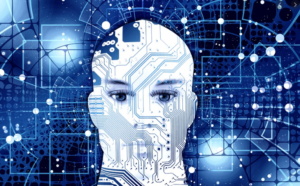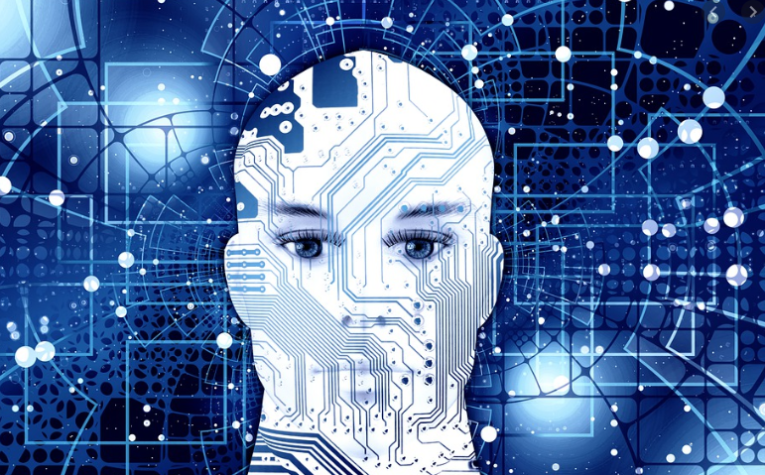
By Product Manager at Trumble Inc. www.trumbleinc.com
Artificial Intelligence [AI] is the future of the world, say the experts. It is expanding rapidly in every industry vertical. Artificial Intelligence is a technology and a branch of computer science that deals with the study and development of intelligent machines and software. It is the science of making a machine to think and act like an intelligent human being. Artificial intelligence makes it possible for machines to learn from experience, adjust to new inputs and perform human-like tasks. Artificial intelligence is the ability of a digital computer or computer-controlled robot to perform tasks commonly associated with intelligent beings. Artificial intelligence refers to the simulation of human intelligence in machines that are programmed to think like humans and mimic their actions.
From SIRI or Alexa to self-driving cars, artificial intelligence (AI) is progressing rapidly. While science fiction often portrays AI as robots with human-like characteristics, AI can encompass anything from Google’s search algorithms to IBM’s Watson to autonomous weapons. With the advancement in technology, we are already connected to AI in one way or the other – whether it is Siri, Watson or Alexa. The Artificial Intelligence is now all around us.
AI Global Market:
- The global Artificial Intelligence (AI) in Healthcare Market scope was projected at $2.5 billion in 2018.
- AI Global Market likely to reach $31.3 billion by 2025 with a CAGR of 41.5 period during the prediction period.
- IDC predicts worldwide spending on cognitive and Artificial Intelligence systems will reach $77.6B in 2022.
Types of Artificial Intelligence:
- Reactive Machines: Reactive machines do not store memories or learnings from past experiences. They simply react to the surroundings and choose the most optimal solution amongst available alternatives.
- Limited Memory: Limited memory machines retain data in a transient manner; meaning that its memory lasts for a short period of time.
- Theory of Mind: These AI machines can socialize and understand human emotions and will have the ability to cognitively understand somebody based on the environment, their facial features.
- Self-Awareness: This is the future of AI. These machines will be super intelligent, sentient and conscious. They are able to react very much like a human being, although they are likely to have their own features.
Sub-fields of Artificial Intelligence:
- Cognitive Computing: Cognitive computing is the use of computerized models to simulate the human thought process in complex situations where the answers may be ambiguous and uncertain.
- Computer Vision: Computer Vision is defined as a field of study that seeks to develop techniques to help computers ‘see’ and understand the content of digital images such as photographs and videos.
- Deep Learning: Deep learning, which is a subcategory of machine learning, provides AI with the ability to mimic a human brain’s neural network. It can make sense of patterns, noise, and sources of confusion in the data.
- Machine Learning: It is machine learning that gives AI the ability to learn. This is done by using algorithms to discover patterns and generate insights from the data they are exposed to.
- Neural Networks: ANN was developed considering the same as of our brain, same how our brain works was taken into account. It was inspired by the way neurons work; the major task is to process information.
- Natural Language Processing: Processing of Natural Language is required when you want an intelligent system like robot to perform as per your instructions, when you want to hear decision from a dialogue based clinical expert system
- Chatbot and Intelligent Agents: The ability of a system to calculate, reason, perceive relationships and analogies, learn from experience, store and retrieve information from memory, solve problems, comprehend complex ideas, use natural language fluently, classify, generalize, and adapt new situations.
Benefits of Artificial Intelligence
- Rational Thinking and Replicate human intelligence
- Fast Decision Making: As machines don’t yet have feelings of their own, or biases and interpretations of their own, we can be rest assured that decisions taken by systems are not influenced by personal prejudices.
- Solve Knowledge-intensive tasks and Plan Creation and Execution
- An intelligent connection of perception and action
- AI chat bot helps in interacting
- Creating some system which can exhibit intelligent behavior, learn new things by itself, demonstrate, explain, and can advise to its user
- AI have capacity to process millions of sensor input
- High Accuracy with less errors: AI-enabled machines are responsible for inputting the values and data, this reduces the chances of human error
- High-Speed- Machines come into rescue exactly when things go beyond the control of us humans.
- High reliability and Useful for risky areas
- Digital Assistant and can be Useful as a public utility
Disadvantages of AI:
- High Cost:The hardware and software requirement of AI is very costly.
- Can’t think out of the box:Even we are making smarter machines with AI, but still they cannot work out of the box.
- No feelings and emotions:AI machines can be an outstanding performer.
- Increase dependency on machines:With the increment of technology, people are getting more dependent on devices and hence they are losing their mental capabilities.
Applications of Artificial Intelligence
- Natural language processing (NLP): The system will be able to analyse and understand what humans are talking
- Self-Driving Cars: Tesla’s famous self-driving cars is a magnificent real-life application of Artificial Intelligence.
- Gaming: it have a huge hand in strategic gaming, where machine have to think and take decisions based on heuristic knowledge.
- Vision System: These will analyse, interpret understand visual input on the computer. Doctors use clinical expert system to diagnose the patient.
- Google Translate:Google Translate is another great application of Artificial Intelligence. It helps us translate sentences formed in one language to another.
- Text Recognition: Understanding human language is very challenging task. The intelligent system can understand and adapt the human language. E.g. hand-written recognition.
- Google Maps: It is one of the wonderful examples of AI. Today, without Google Maps, it is impossible to survive in the city.
- Intelligent Robots: Robots are able to perform the tasks given by a human. They have sensors to detect physical data from the real world such as light, heat, temperature, movement, sound, bump, and pressure
- AI in Education: AI can deliver a better learning experience by adjusting learning as per the needs of each student, and provide universal access to students.
- AI in Government: Governments have started honing AI to make suitable policies and services. Governments can use AI to counter natural disasters, road accidents, and many such problems a country may face.
